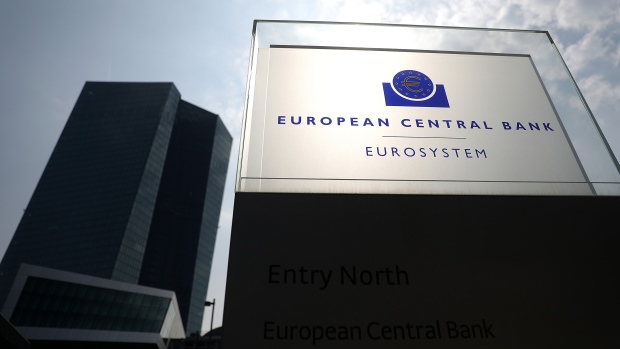May 27, 2019
Italy seeks ECB board seat to push for infrastructure investment
, Bloomberg News

Italy will seek a seat on the European Central Bank’s Executive Board and use it to push the institution to buy bonds to fund infrastructure projects, according to a senior lawmaker in the coalition government.
European Union leaders are preparing to start negotiations over the next suite of top policy positions including a replacement for ECB President Mario Draghi. His departure at the end of October could leave Italy without a place at the heart of the central bank for the first time in the currency bloc’s history.
“We must have a seat on the board -- it’s impossible that an economy the size of Italy’s shouldn’t have one,” Claudio Borghi, economic adviser to Deputy Prime Minister Matteo Salvini, said in an interview. “It’s also important for us to have a seat because we’re going to make proposals on governance.”
Prime Minister Giuseppe Conte will aim for a seat on the six-member board, with Salvini’s League likely to play the lead role in picking a candidate, said two Italian officials who declined to be named discussing a confidential issue.
Borghi said the League wants the ECB to play a bigger role in stimulating sluggish economies by financing investment. He heads the budget committee of the lower house, while the League is the dominant force in the populist coalition after it trounced its partner, the Five Star Movement, in European Parliament elections at the weekend.
“This would be a kind of quantitative easing for infrastructure,” said Borghi. “The European Investment Bank would issue bonds to finance public works, and the ECB would buy them.”
That proposal is likely to be controversial at the central bank, which is barred by law from funding governments and which has had to fight court cases over previous bond-buying programs. One of the key critics of any move toward monetary financing is Bundesbank President Jens Weidmann, who is a candidate to succeed Draghi.
Borghi said the topic should be discussed in the first meetings of the new board and in the first sessions of the new European Parliament.
EU Run-Ins
The rightist League’s new strength means it will likely play a dominant role in shaping Italy’s strategy on a host of upcoming EU jobs such as the heads of the council of leaders and the European Commission. Leaders will kick off the horse-trading at a summit in Brussels on Tuesday, with current Council President Donald Tusk already calling for a “geographical balance.”
Italy’s chances will depend partly on whether France or Germany manage to fill the presidency after Draghi. If the new president isn’t from one of the leading economies, then both France and Germany will insist on a seat and that may leave Italy empty-handed.
If the government is to win any big posts, it’ll need to cultivate alliances within the EU after a series of run-ins, mostly over its budget plans. The country also stands to be deprived of the presidency of the European Parliament -- held by Antonio Tajani until the new parliament starts in July -- and the High Representative for Foreign Affairs, Federica Mogherini.
The ECB’s head of bank supervision is Italian but that’s not technically a policy-making position. The Bank of Italy’s Ignazio Visco is on the Governing Council, which decides on policy based on the board’s proposals. Conte has said Italy wants “adequate representation” in EU institutions, without specifying publicly how that applies to the ECB.









